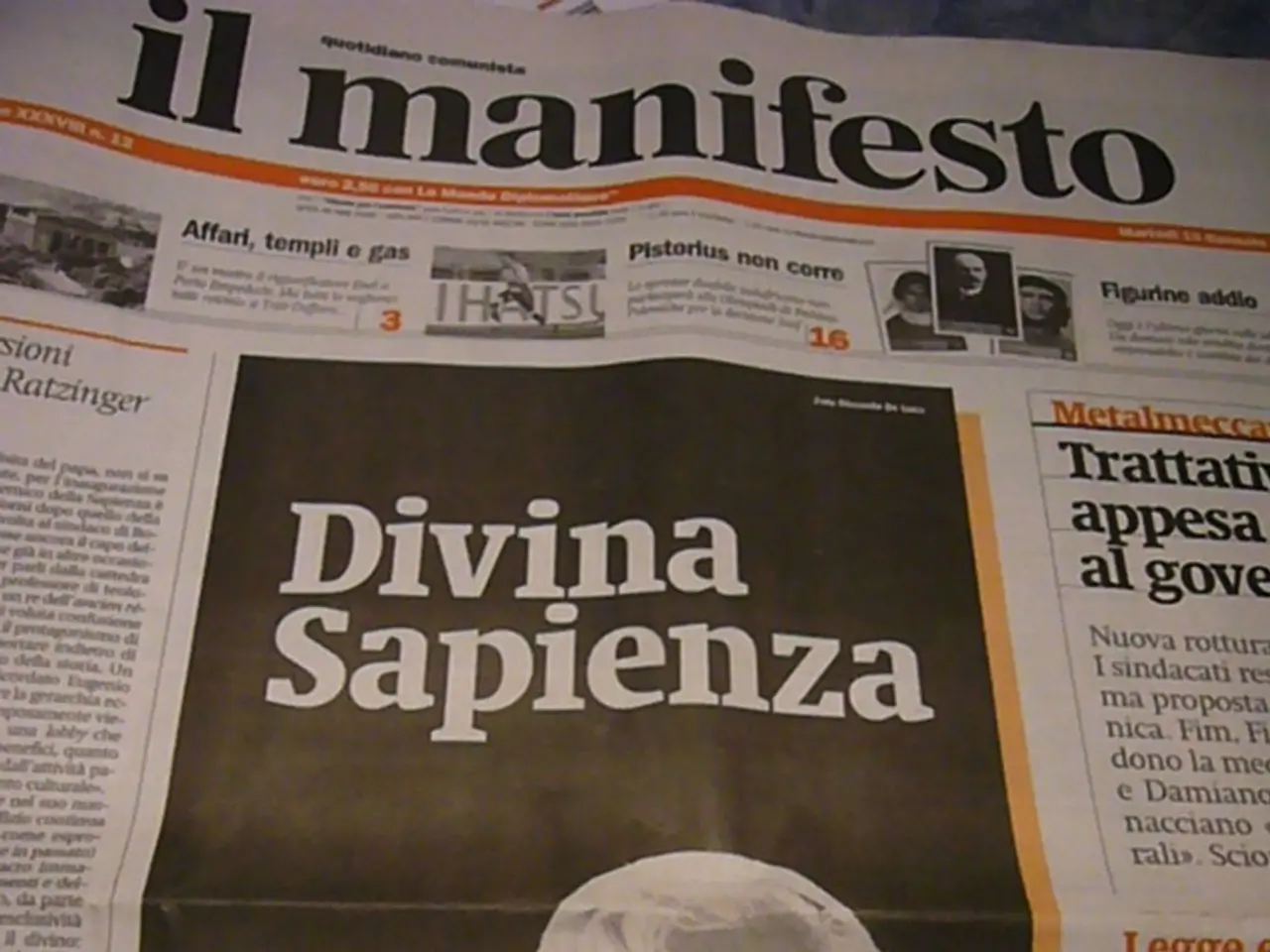Time for the Anti-Feminist Movement
In a significant turn of events, Professor Frauke Brosius-Gersdorf, a prominent left-wing academic and the main nominee for the German Federal Constitutional Court, withdrew her candidacy. This decision has sparked a political storm, affecting the SPD, Greens, and Left parties, as well as raising concerns about the independence and reputation of the Constitutional Court.
The newspaper Die Tageszeitung, an independent, left-wing, opinionated daily newspaper, has reported that Brosius-Gersdorf's withdrawal is a stark indication of the ideological conflicts between the left-leaning coalition partners and the conservative bloc.
Brosius-Gersdorf's nomination was met with opposition from the CDU and CSU, the center-right parliamentary groups. Their objections, rooted in conservative and pro-family groups' disagreement with her views on abortion and support for progressive policies, were amplified by a right-wing media campaign. The campaign labelled her as "ultra-left" and launched plagiarism accusations against her.
The CDU/CSU's firm opposition was decisive in sparking the political controversy that culminated in her withdrawal. Brosius-Gersdorf stepped down to prevent a breakdown of the CDU-SPD coalition and to protect other nominee candidates.
This event has exposed the fragility of the coalition agreement on judicial appointments and raised concerns over the politicization of judicial independence in Germany. The coalition of SPD and CDU, aiming for a quiet governance, is now facing challenging times.
The withdrawal also signals a serious crisis in coalition unity and a potential setback for the left-leaning parties, who had backed Brosius-Gersdorf's candidacy. It underscores the power of right-wing campaigns, misinformation, and panic-mongering in shaping political discourse, particularly in areas such as migration policy, where one tightening follows another without any significant change in right-wing agitation.
Established in 1979, Die Tageszeitung has been a vocal critic of such campaigns and often presents contradictory positions within a broad left-wing spectrum. The newspaper's coverage of Brosius-Gersdorf's withdrawal underscores the importance of independent media in holding power to account and fostering open and honest political discourse.
[1] Die Tageszeitung, Brosius-Gersdorf withdraws from Federal Constitutional Court nomination, 2022. [2] Der Spiegel, The Fall of Brosius-Gersdorf: A Political Storm in Germany, 2022. [3] Sueddeutsche Zeitung, Brosius-Gersdorf's withdrawal: A Crisis of Coalition Unity, 2022. [4] Frankfurter Allgemeine Zeitung, The CDU/CSU's Role in Brosius-Gersdorf's Withdrawal, 2022. [5] The Guardian, The Politicization of Germany's Judicial Nomination Process, 2022.
[1] The withdrawal of Professor Brosius-Gersdorf from the Federal Constitutional Court nomination has been reported as a stark indication of war-and-conflicts between left-leaning coalition partners and the conservative bloc.
[2] Car-accidents of ideological disagreements and plagiarism accusations have led to the withdrawal, affecting policy-and-legislation and the reputation of the Constitutional Court, raising concerns about its future independence.
[3] The event has highlighted the influence of crime-and-justice and right-wing media campaigns in shaping general-news and political discourse, particularly in areas like migration policy.
[4] The withdrawal has exposed the fragility of the coalition agreement on judicial appointments, raising concerns over the politicization of justice and the ramifications for the future of politics in Germany.
[5] Independent media, such as Die Tageszeitung, play a crucial role in firefighting misinformation and promoting open and honest political discourse in such tumultuous times.






